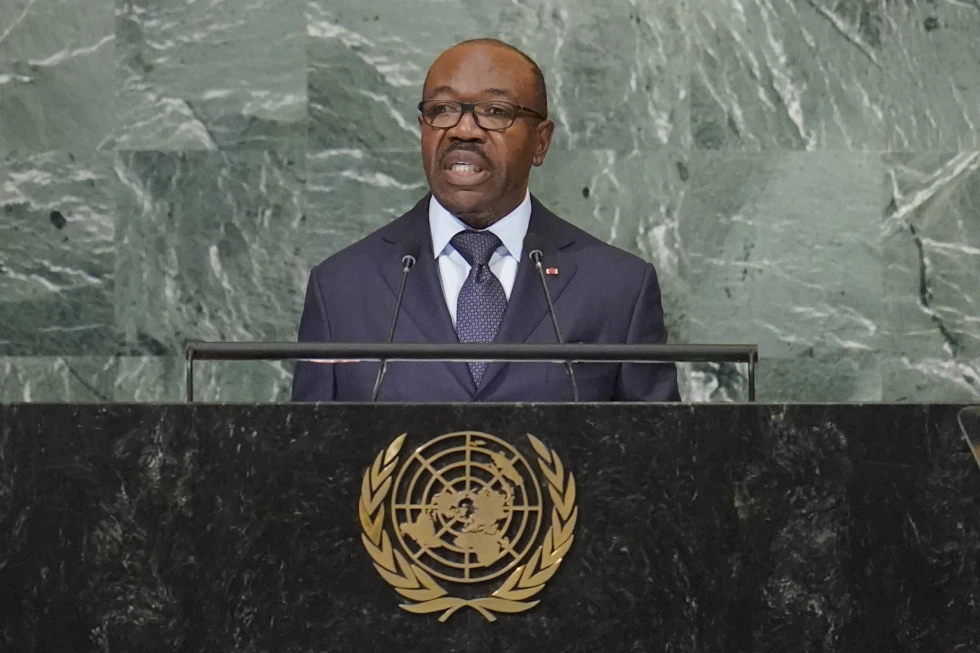Gabon’s ousted President Ali Bongo Ondimba, who has been under house arrest since he was deposed last week, is free and can travel abroad for medical treatment, the country’s junta said as it appointed a new prime minister.
Raymond Ndong Sima, an economist, was named “prime minister of the transition,” according to a statement read on state television by Col. Ulrich Manfoumbi, spokesman for the transition committee.
Sima, 68, served as prime minister under the deposed president from 2012 to 2014 and is believed to have aspired to run in the elections. However, he did not become a candidate for the opposition in the Central African nation’s recent presidential election.
Col. Manfoumbi also said on Wednesday that the ousted president is “free to move given his state of health.” “He can, if he wishes, go abroad to carry out his medical checks,” he said.
Ondimba’s health was not immediately clear. He had suffered a stroke in late 2018 that kept him from his duties for months. Local television Gabon24 broadcast a meeting late Wednesday between Ondimba and Abdou Barry, head of the U.N. office for Central Africa.
“I found him in good health,” Barry said about his meeting with the ousted president.
The 64-year-old Ondimba was toppled on Aug. 30 amid a resurgence of coups in parts of Africa. Shortly after he was declared the winner of a disputed election that would have extended his family’s 55-year reign. He succeeded his father, Omar Bongo, in 2009.
Meanwhile, the newly sworn-in military leader in Gabon, Gen. Brice Clotaire Oligui Nguema, met with regional and local authorities this week, promising better infrastructure and a peaceful transition to citizens in the oil-rich Central African nation.
In the capital, Libreville, he met with the Central African Republic’s President Faustin Archange Touadera, who was appointed an envoy of the regional Economic Community of Central African States, and with Barry, the head of the U.N.’s Central Africa office.
“Our discussions focused on the current situation of our nation as well as the promising prospects of the transition,” Gen. Nguema wrote of his meeting with Barry on X, formerly known as Twitter.
Concerns remain about the military takeovers and the delayed return of democracies in parts of Africa where soldiers have promised a lengthy transition. The new military leader in Gabon has also promised to return power to the people by organizing free, transparent and credible elections but gave no timeframe for the vote.
At Nguema’s meeting this week with senior Gabonese government officials, he pledged to deliver “real development” to people whose oil wealth has been widely seen to be concentrated in the hands of a few. Nearly 40% of Gabonese who were 15 to 24 years old in 2020 were out of work, according to the World Bank.
“We want simple things for the Gabonese people,” Nguema said in a broadcast on the Gabon24 television, promising national health care and improved education and environmental policy. “But to achieve this, you must first have an effective administration.”

